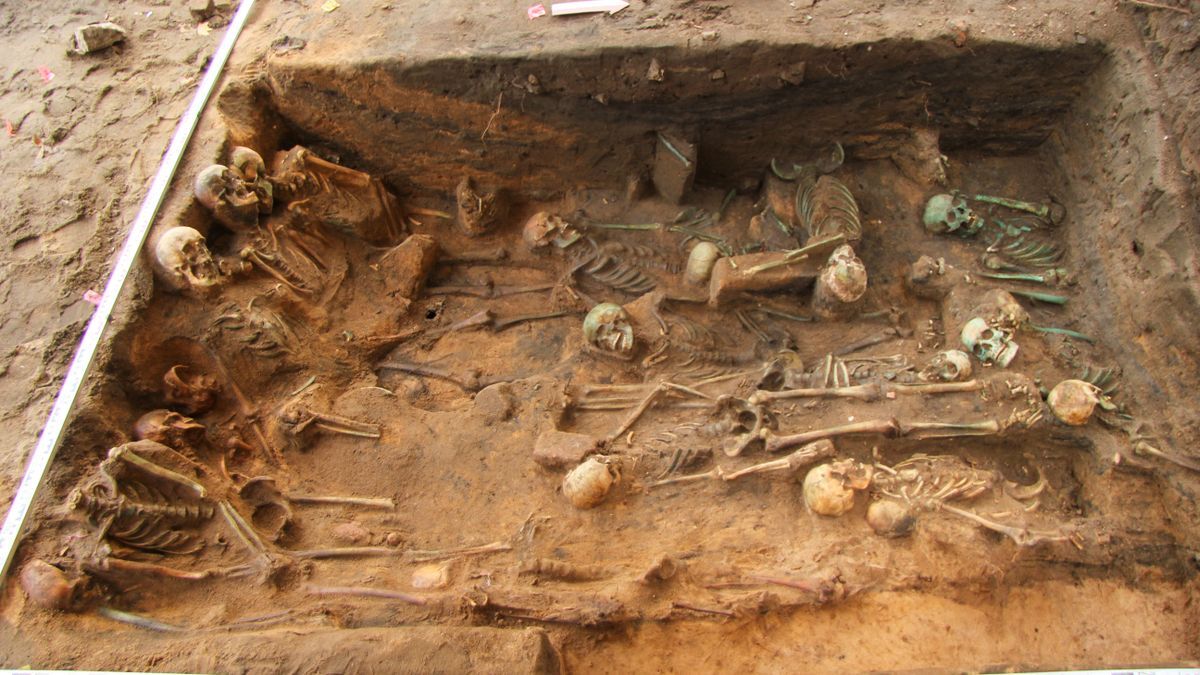Plague pits containing the remains of at least 1,000 victims have been unearthed in southern Germany. The pits could together form the largest mass grave ever discovered in Europe, archaeologists say.
The excavations, which were carried out ahead of construction work in the city of Nuremberg, revealed eight pits each crammed with hundreds of skeletons belonging to adults, children and babies that date to between the late 15th and early 17th centuries. Archaeologists also found pottery shards and silver coins in two of the three pits they have finished excavating. Radiocarbon dating revealed the pottery coincides with plague outbreaks that occurred between 1622 and 1634, while the coins date to around 1619, according to a statement released by the archaeological excavation company In Terra Veritas.
“A discovery like that has never happened before and quite honestly, no one had thought this to be possible,” Melanie Langbein, of Nuremberg’s department for heritage conservation, said in the statement. “The site is of enormous importance to the city of Nuremberg.”
And the plague is dead yes?
Asking the real questions



